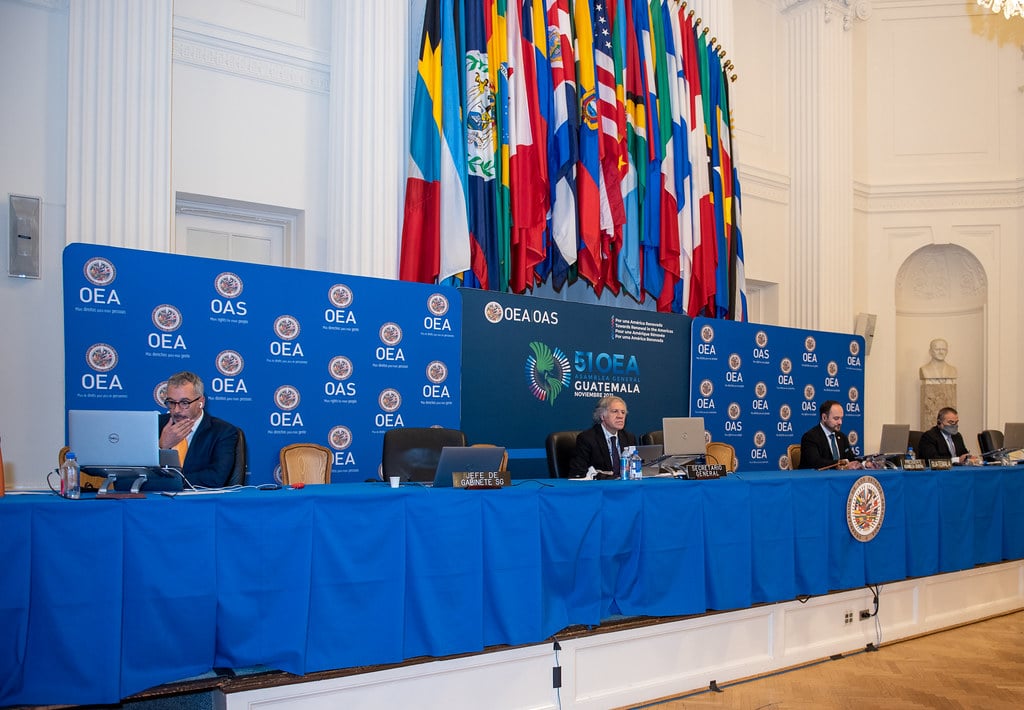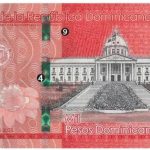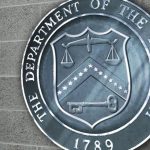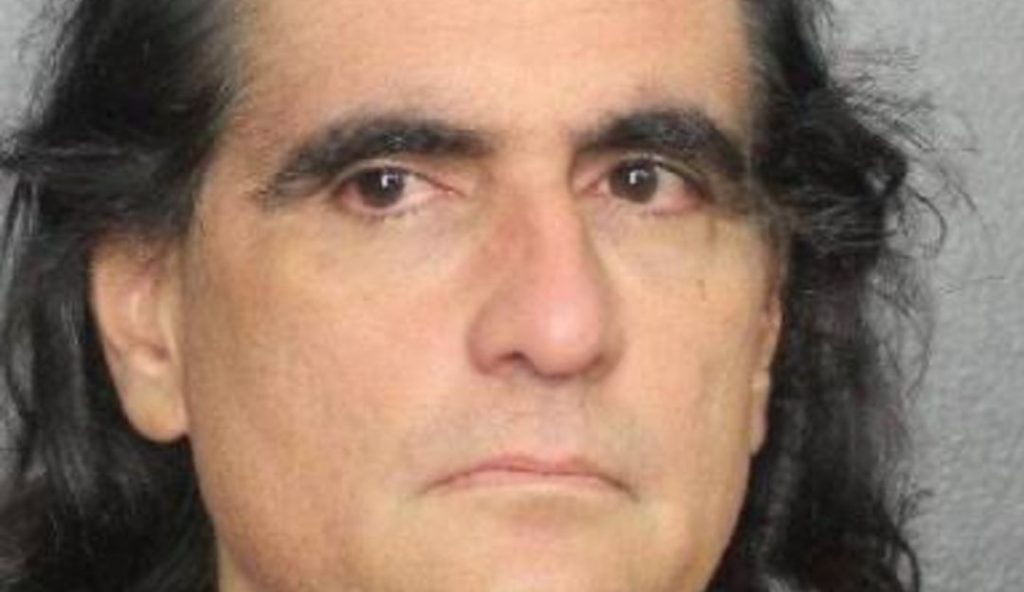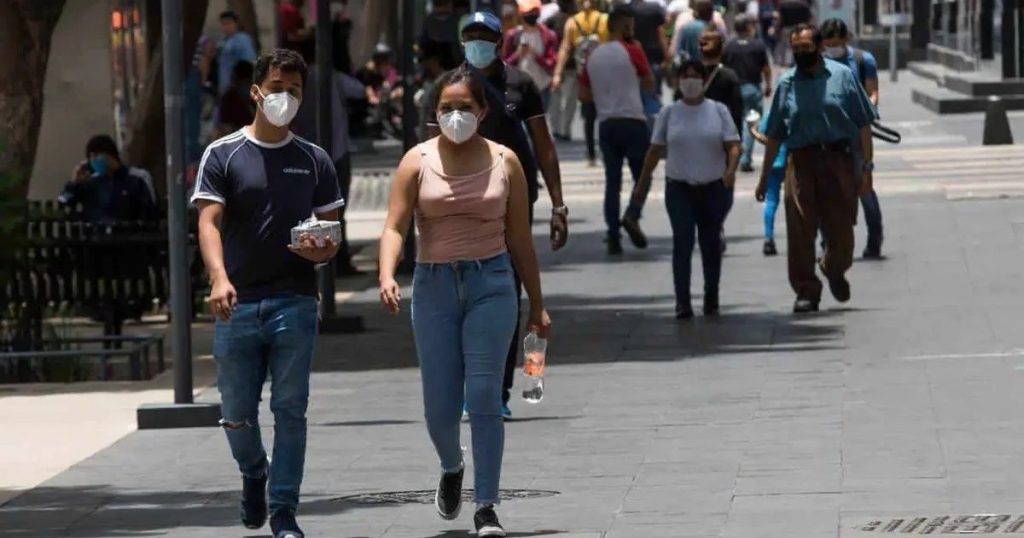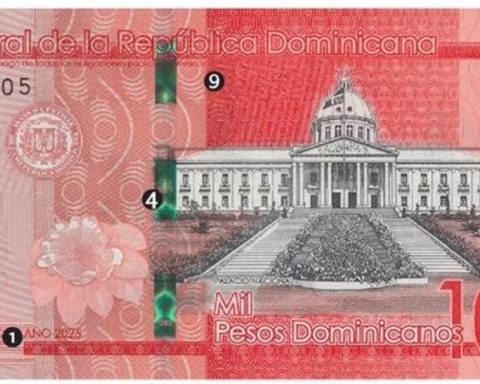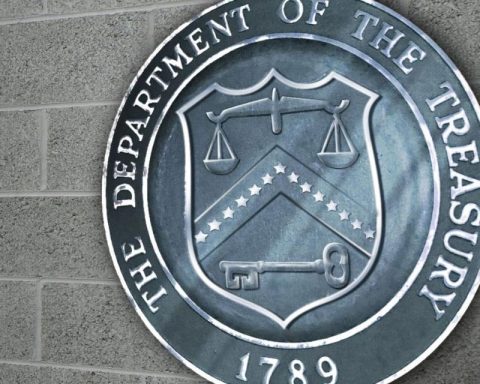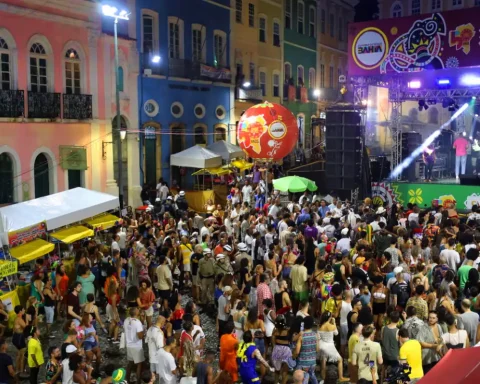The socio-political crisis in Nicaragua will remain on the agenda of the Organization of American States (OAS) and, although the members of the Permanent Council opted this Monday for “more diplomatic efforts,” two specialists in International Law explain that “the process of collective assessment continues ”and they estimate that the body will not remove its finger from the line.
There is “great concern” among the member states of the OAS about the worsening of the situation in Nicaragua, values one of the specialists, who agreed to offer his assessment on condition of anonymity, due to the political persecution of the Ortega regime, which has imprisoned dozens of citizens in recent months. Nicaragua denounced the Charter of the OAS and expressed its intention to withdraw as a member state. However, the analyst added that although they “respect that sovereign decision,” the member states would also expect that decision “to be reconsidered and reversed,” he added.
During the meeting this Monday, in an extraordinary session, the alternate representative of Nicaragua in the OAS, Michael Campbell, assured that the decision to leave the organization is “irrevocable” and pointed out that the organization was “a builder of interference and disagreements, to the detriment of the peoples of Latin America and the Caribbean ”. The withdrawal, however, will be effective until November 2023, as the process lasts two years.
It is for this reason that the first specialist consulted by CONFIDENTIAL indicated that by maintaining the collective valuation and as long as the country does not leave the OAS, “any member state or the secretary general may convene at any time” to discuss the crisis in Nicaragua.
The members of the OAS Permanent Council also reiterated their concern about the violations of the human rights of Nicaraguans and the lack of fundamental freedoms in the country. They resumed the need to seek a peaceful and consensual solution, which in the inter-American system is achieved through diplomatic efforts.
They will await the “inauguration” of Ortega
A second specialist in International Law agreed that the OAS Permanent Council will continue to “evaluate” the situation, without being clear about the application of the Inter-American Democratic Charter because doing so would “cut off any type of negotiation” with the regime and the diplomatic means try precisely to “open that window” of dialogue at some point.
In the short term, “the shares will continue to be calls for dialogue and to stop violating rights humans, “said the specialist. But “I would believe that in the end, they will wait for the” inauguration “(of Daniel Ortega) if there is no change,” he added.
Other reasons why the OAS Permanent Council does not decide to apply Article 21 of the Democratic Charter to Nicaragua, the specialist values, are the organization’s internal problems since “many countries are not happy with the management of ( Luis) Almagro ”and also the experience of Venezuela showed that the suspension was not“ an effective instrument ”to restore the rule of law.
Almagro, for his part, urged the international community to continue pressuring Ortega, so that Nicaragua “can resume the path of democracy.”
“The international community must strengthen its pressure mechanisms, those that are bilateral, those that are multilateral, those that have to do with financial organizations, and those that have to do with political multilateralism. We must continue working so that Nicaragua can resume the path of democracy, ”Almagro said.
“Evaluation is a process, not an event”
Meanwhile, the representative of Antigua and Barbuda, Ronald Michael Sanders, urged the OAS to respect the procedure established in articles 20 and 21 of the Inter-American Democratic Charter for collective evaluation, since this is a process that lasts over time.
“We are now in a collective assessment of the situation in Nicaragua. My delegation wants to emphasize the fact that the evaluation is a process, not an event, therefore if the process this afternoon is an event, the process includes other steps also established in the articles of the Inter-American Democratic Charter, ”he emphasized. Ambassador Sanders.
In accordance with Article 20 of the Democratic Charter, “in the event that a member state has an alteration of the constitutional order that seriously affects its democratic order, any member state or the secretary general may request the immediate convocation of the Permanent Council to carry out a collective assessment of the situation and adopt the decisions it deems appropriate ”.
Nicaragua “has chosen the path of isolation”
During the collective assessment, the alternate representative of the Dominican Republic, Anabel Bueno, regretted that Nicaragua had decided to withdraw from the organization and proposed to the member states to adopt “firm measures”, mainly with regard to the voting on November 7, in which Ortega was reelected without political competition.
“We are very aware that when a crisis affects a country, it generally has repercussions on its neighbors and on the entire region,” warned Ambassador Bueno. “The decision has recently been made to denounce the letter from our organization, thereby initiating its withdrawal process from the OAS, with the aforementioned actions the path of isolation and distancing has been chosen,” he added.
The representative of Ecuador, Marco Ponce, valued that Nicaragua is “in violation of the Democratic Charter, which should not be tolerated” and advocated for a genuine dialogue for the holding of new presidential and legislative elections under international supervision.
Vivanco urges application of the Democratic Charter
Meanwhile, the director for the Americas of Human Rights Watch (HRW), José Miguel Vivanco, urged the members of the OAS Permanent Council to “urgently apply” Article 21 of the Inter-American Democratic Charter to Nicaragua, according to which this country could be suspended from the organization with a majority of two-thirds of the votes.
In a document addressed to Ambassador Josué Fiallo, president of the OAS Permanent Council and permanent representative of the Dominican Republic, the human rights defender reported on the serious human rights crisis and the dismantling of the rule of law in Nicaragua.
“Human Rights Watch has documented that the Ortega government has consolidated itself as a typical dictatorship and, therefore, there are no standing independent institutions that can curb abuses by the Executive Branch. In these circumstances, atrocities have been committed with total impunity and the regime has shown a flagrant disregard for the rule of law and fundamental democratic principles, ”the text says.
Among the “atrocities” mentioned by Vivanco, the concentration of power, the repression that began in 2018, the approval of repressive laws and the arbitrary arrests and prosecutions in the framework of the 2021 elections stand out.
